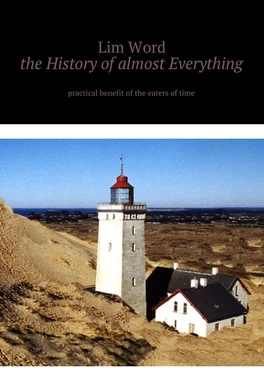But, between Turkey and Russia, there are moments of complete mutual understanding. In 1831, Istanbul was threatened with the seizure of troops by the former vassal of Porta, Muhammad Ali of Egypt. The Sultan requests assistance from Russia, then on the shores of the Bosporus a 10,000-strong corps of Russian troops is landed. It prevents the capture of Istanbul and the possible disintegration of the Ottoman Empire.
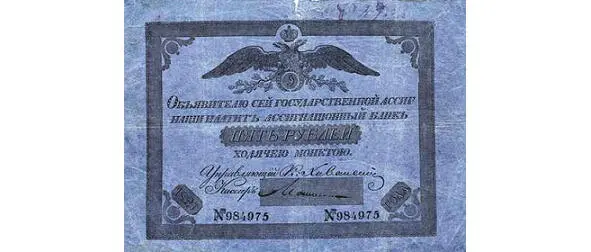
1
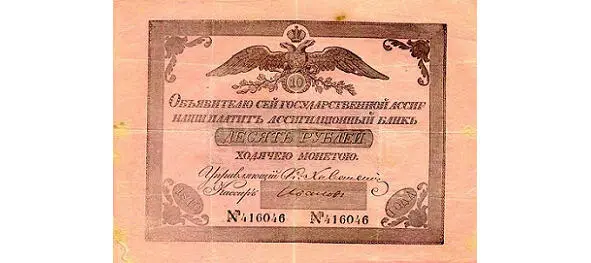
2
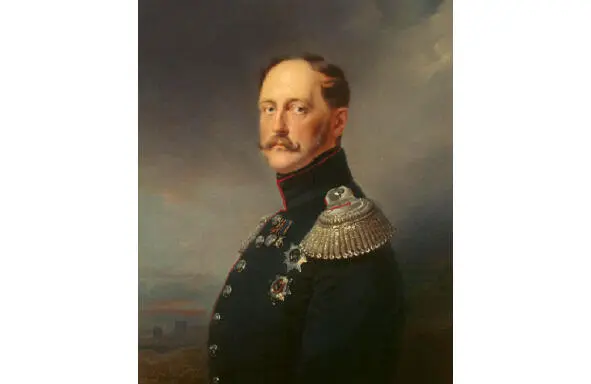
3
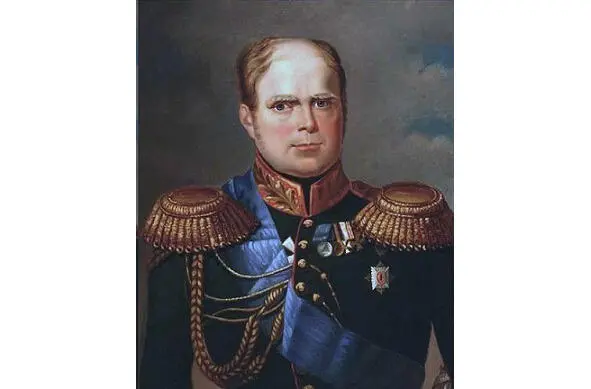
4
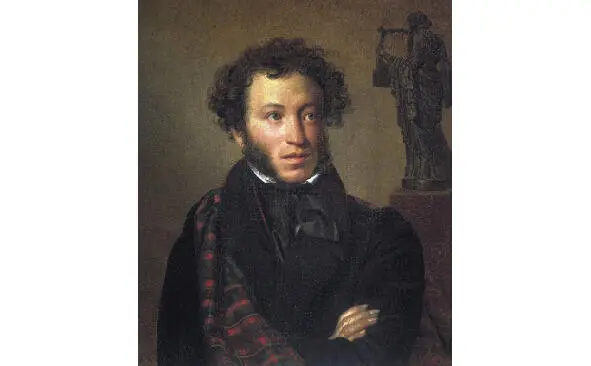
5

6

6а

7
1. Banknote 5 rubles, circulation 1830—1849 g. Signature of the cashier is made manually. She is the same: “blue-eyed, cyanosis, titmouse”
2. Banknote 10 rubles, circulation 1819—1849. Nicknames: “red, rubella, cancer”. A live goose is worth a ruble twenty, a dozen eggs 23 kopecks, a kilogram of fresh 25 kopecks.
The salary of an official of the lowest, 14th grade (collegiate assessor) is 35 rubles per month (banknotes). The usual “fatness” of bribes at this level is 150 rubles a year. The sovereign is indulgent towards this phenomenon. However, there is practically no corruption at the highest level, and the officials are fully competent.
3. Nicholas the First Emperor of All-Russia, King of Poland, Grand Duke of Finland (1796 – 1855). The cause of death is a severe cold, or, against the background of failures in the Crimean War, the acceptance of poison.
4. Konstantin Pavlovich (Romanov), adjutant-general, emperor of several days, the nominal governor of the kingdom of Poland (1799 – 1831). He died of cholera.
5. Alexander Pushkin, poet, the founder of the modern Russian literary language. Birth May 26, 1799 according to the modern (Gregorian) calendar, in the family of a non-titled (not having generic titles, such as the baron, earl …) noble family – what is happening, according to legend, from Ratmir (Ratshi), servant and friend of Alexander Nevsky. The birthplace is Moscow, the German settlement, a settlement now dissolved in the Lefortovo and Baumanskaya streets. The younger brother – Lev – personal secretary of the writer, combat officer, sister – Olga… nothing special marked, except that in childhood she was very friendly with Alexander. Since 1811 – six years of study at the Tsarskoye Selo Lyceum. The first issue of this educational institution is marked by a surge of manifested and flourished talents. Since 1817, the work of a collegiate assessor (which is roughly equivalent to the rank of lieutenant), in so far as – in the College of Foreign Affairs. Further succession – travel, quarrels, reconciliation, flirting with beautiful ladies (Natalia Goncharova – one hundred and thirteenth love), writing poems. The poet’s account is 32 duels, of which 29 are canceled. On one of the fights, the duelists miss, on the second – Pushkin, in which an opponent has already fired, refuses satisfaction. The third conflict – with J. Dantes, who spoke in defense of the adoptive father, the Dutch ambassador, Louis Heckern, ends tragically.
The duel is set by very strict rules. Opponents are twenty paces from each other and at a signal they converge to the barrier indicated in five meters, thrown by greatcoats. During the passage of this path, a shot is fired. Dantes wounded Pushkin in the stomach. Alexander changes the pistol, the barrel of which is packed with snow, pulling the trigger. The bullet punches his hand and stops on his chest – supposedly stopped by a massive button. It is widely believed that by the time of the duel, d’Anthes prepares a cuirass made of high-quality steel.
The Baron, as well as the adoptive father, is expelled from Russia. Subsequently, Dantes holds high positions in the government of France.
Nicholas the First covers all the debts of the poet from the treasury (138 thousand rubles, of which 94 thousand are card losses), takes part in the fate of four of his children – Alexander, Maria, Natalia and Gregory, in essence, forms the cult of poetry of Pushkin at the state level.
6, 6a Aboriginal Russian (somewhat already forgotten) dish – kulebyaka. For the Eaters of Time. A symbol of traditional Russian cuisine of the nineteenth century. The name comes from the words “kolob” – a small bread, or “kulebyachit” – “cook, roll the dough”. The main idea: fresh pancakes separate the pie fillings, not allowing their taste to interrupt each other. As stuffing is used forcemeat of meat of all sorts, cabbage, buckwheat porridge, steep eggs, fish, mushrooms, onions. In shape, the ready-made pie resembles a loaf, as a rule, it is decorated with dyed pigtails from above. To the table, as a rule, it is served chopped into portions slices. Variety kulebyaki – holiday kurik, higher, rounded, reminiscent of the “cap of Monomakh”, with stuffing from chicken, buckwheat porridge and eggs with onions – also separated fresh pancakes.
7. Pies. A traditional Russian dish, a patty with a hole from the top (“unbuttoned”). In the open middle, right after baking, melted butter, meat or fish broth with shredded parsley is poured. The filling of red fish, or rice with onions and steep eggs is covered with a piece of Caspian sturgeon.
…A new Polish ripens, the so-called. “November” uprising, under the slogan of restoring the Commonwealth within the borders of 1772 (ie with Byelorussians, Ukrainians, Jews and Lithuanians). But not only exorbitant ambitions drive rebels. The reason for the discontent is preliminary censorship, the cancellation of the (Napoleonic) jury trial, as well as the rumors that Polish troops should become the vanguard of the Russian army in the invasion of Belgium (where a bloody religious conflict erupts). In any case, the deeply conspiratorial and ramified, Patriotic (Masonic) Society has long been formed, and it wants not to reason, but to act.
November 29, 1830 conspirators attack the army barracks. The six faithful oaths of the Polish generals die. Captures the Belvedere Palace, in which the failed monarch takes refuge, Konstantin Pavlovich, however, this bird flies away on time. Further, the passive governor refuses to take part in any hostilities, declares that the whole fight is a conflict exclusively between the Poles and his brother, Nikolay the First, dissolves the Russian regiments, retires beyond the Vistula.
Members of the Patriotic Club diligently clean the Polish government, so-called. The Administrative Council. More and more points of view are emerging, anarchy is reigning and, in this mess, a certain general, Josef Khlopitsky declares himself a dictator. The conditions of peace sent to St. Petersburg are reduced, practically to the same thing that Poland has under the Constitution of 1815; except for the point on the restoration, in fact, of the Polish-Lithuanian Commonwealth. The Russian monarch does not promise anything other than an amnesty. The Saeima makes a decree on the detonation of Nikolai the First (and his heirs) on the Polish throne. A full-scale war begins.
Читать дальше
